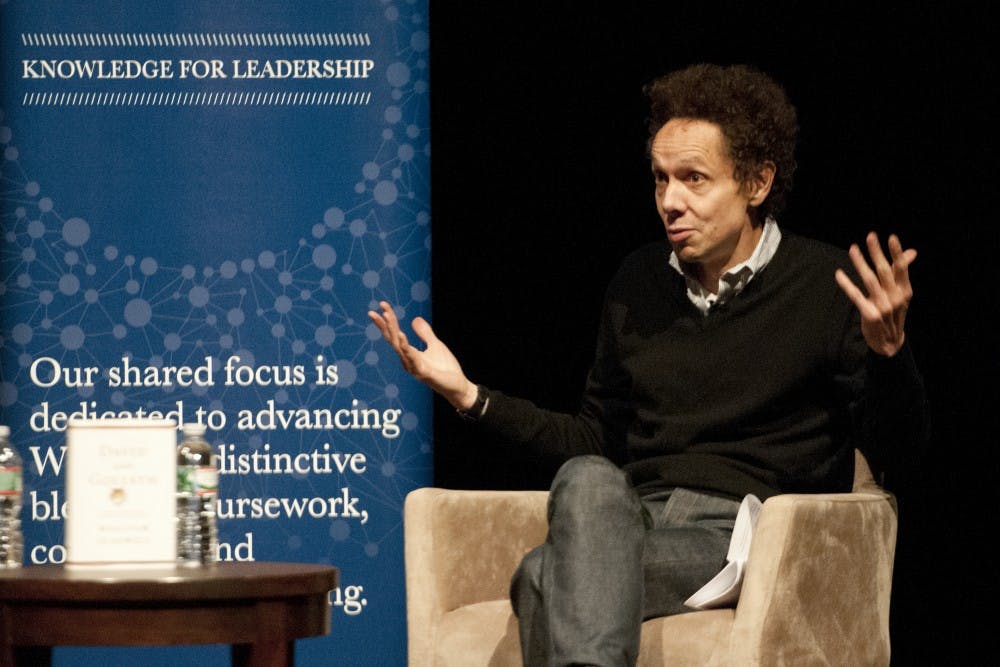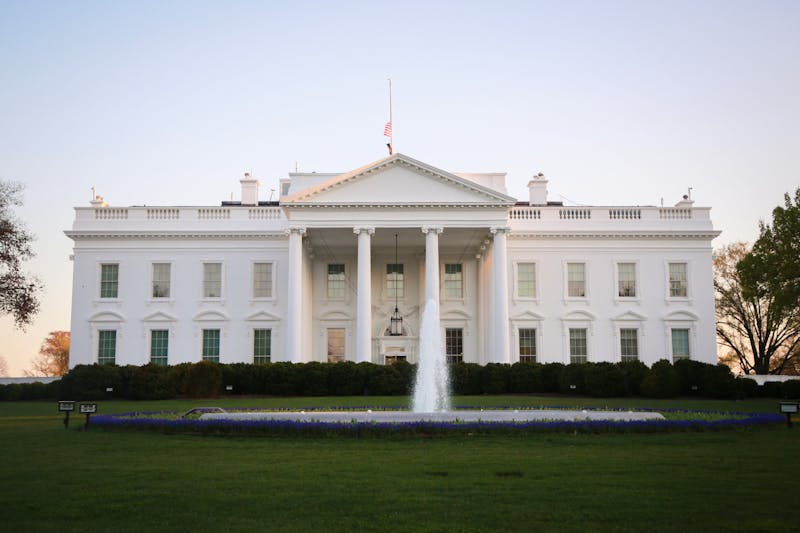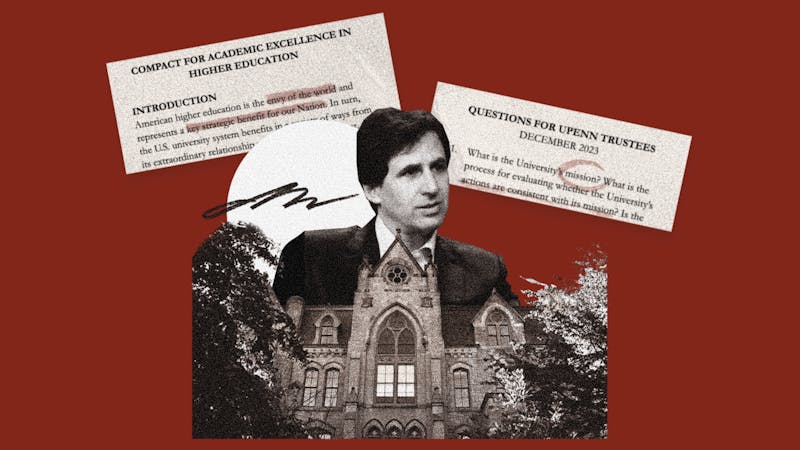
Every time Malcom Gladwell comes to Penn, he shows that he is not afraid of controversy.
The noted journalist and author once again returned to campus on Wednesday to discuss the legitimacy theory and how it relates to Penn. The talk, moderated by Adam Grant, was part of this year’s Authors@Wharton Speaker Series. Following the conversation, Gladwell answered questions tweeted from the crowd at the Zellerbach Theater.
Gladwell, who has written bestsellers such as “The Tipping Point,” “Blink” and most recently “David and Goliath,” did what he is most famous for: challenging common misconceptions and offering bold solutions. He began with a story from 1970, when the British army invaded Northern Ireland in an attempt to restore order in the region. Contrary to popular belief, the more stringent the British soldiers were towards the citizens of Northern Ireland, the more rebellious the citizens acted in response.
“People will obey authority when people feel that authority is acting legitimately,” Gladwell said. “When you increase penalties, you undermine the the legitimacy of the system.”
Gladwell contrasted this incidence with the seemingly inexplicable compliance with the American tax system. Despite the fact that various social scientists have proven that it is more economically rational to cheat the system, Americans are more diligent about paying their taxes than citizens of any other country because they largely feel their taxes are just.
“Legitimacy needs to be protected so that our society can function as it should,” he said, adding that the unrest in Ferguson stemmed from a fundamental distrust in the police force and local government.
Gladwell also applied this concept, known as the legitimacy theory, to higher education in America. As public universities are becoming more expensive and private universities are becoming more wealthy, education has become increasingly inaccessible.
To relate the legitimacy theory to Penn students in particular, Gladwell explained that the 10 wealthiest private schools in the nation, including Penn, receive the greatest amount of tax subsidies. As a result of these subsidies, the average Penn student receives $27,000 worth of benefits while the average student at Penn State receives a mere $9,000.
“Is there a reason why Penn gets such a high proportion of taxpayer money?” he asked. “Is it the case that Penn does a better job at making education accessible?”
Gladwell did not think so. He claimed that only seven other schools serve a smaller percentage of disadvantaged kids than Penn, yet another example of inequality that he believes undermines the legitimacy of American higher education.
“There is no justification for why you should get a subsidy three times that of someone at a public school,” Gladwell said. “You need to stand up and say that you do not want to profit from a version of authority that is not fundamentally legitimate.”
This was not the first time Gladwell called on Penn students to act. In a February 2013 speech at Penn — one of many past visits — he caused a stir for suggesting that students boycott the “violent, stupid game” of football on campus.
As demonstrated by events such as Ferguson, Gladwell acknowledged that the idea of citizens fighting back against societal institutions is unsettling. However, he encouraged Penn students to promote such change.
“When major social change happens in a society it is because students stand up and speak up,” Gladwell said. “The beneficiaries of the system need to stand up against it.”
The Daily Pennsylvanian is an independent, student-run newspaper. Please consider making a donation to support the coverage that shapes the University. Your generosity ensures a future of strong journalism at Penn.
DonatePlease note All comments are eligible for publication in The Daily Pennsylvanian.







